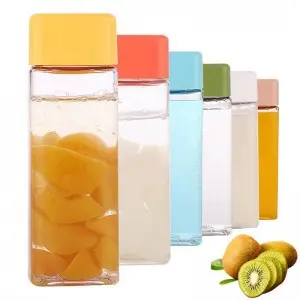In our quest for a more sustainable way of life, it is necessary to expand our recycling efforts beyond ordinary paper, glass and plastic items. One item that is often overlooked when recycling is medicine bottles. These tiny containers are often made of plastic and can create environmental waste if not disposed of properly. In this blog, we’ll guide you through the process of recycling pill bottles, enabling you to make a positive impact on our planet.
Learn about pill bottles:
Before we dive into the recycling process, let’s familiarize ourselves with the different types of pill bottles that are commonly used. The most popular include prescription bottles, over-the-counter pill bottles, and pill bottles. These bottles usually come with child-resistant caps made of high-density polyethylene (HDPE) plastic to protect sensitive medications.
1. Cleaning and sorting:
The first step in recycling medicine bottles is to make sure they are clean and free of any residue. Remove tags or any identifying information as they will interfere with the recycling process. If the label is stubborn, soak the bottle in warm soapy water to make it easier to peel off.
2. Check local recycling programs:
Research your local recycling program or check with your waste management agency to determine if they accept vials in the recycling stream. Some cities accept pill bottles for curbside recycling, while others may have specific collection programs or designated drop-off locations. Understanding the options available to you will help ensure your bottles are recycled effectively.
3. Return plan:
If your local recycling program doesn’t accept pill bottles, don’t lose hope! Many pharmaceutical companies have mail-back programs that offer consumers a convenient and environmentally friendly way to dispose of their vials. These programs allow you to mail empty bottles back to the company, where they will be effectively recycled.
4. Donate or reuse:
Consider donating clean, empty pill bottles to charitable organizations so they can be put to good use. Animal shelters, veterinary clinics, or medical clinics in underserved areas often welcome donations of empty bottles to repackage medications. Plus, you can repurpose the pill bottle for a variety of purposes, such as storing vitamins, beads, and even organizing small items, eliminating the need for single-use plastic containers.
in conclusion:
By recycling medicine bottles, you can contribute to reducing plastic waste and conserving valuable resources. Make sure you follow proper recycling steps, including cleaning and sorting bottles, checking local recycling programs, taking advantage of mail-back programs, and considering donation or reuse options. By incorporating these practices into our daily lives, we can make a big difference in protecting the environment.
Recycling pill bottles is just one small step toward a greener future. Embracing sustainable habits and spreading awareness in communities will have a huge impact on the well-being of our planet. Let’s work together to reduce waste, one bottle at a time!
Post time: Jul-17-2023
